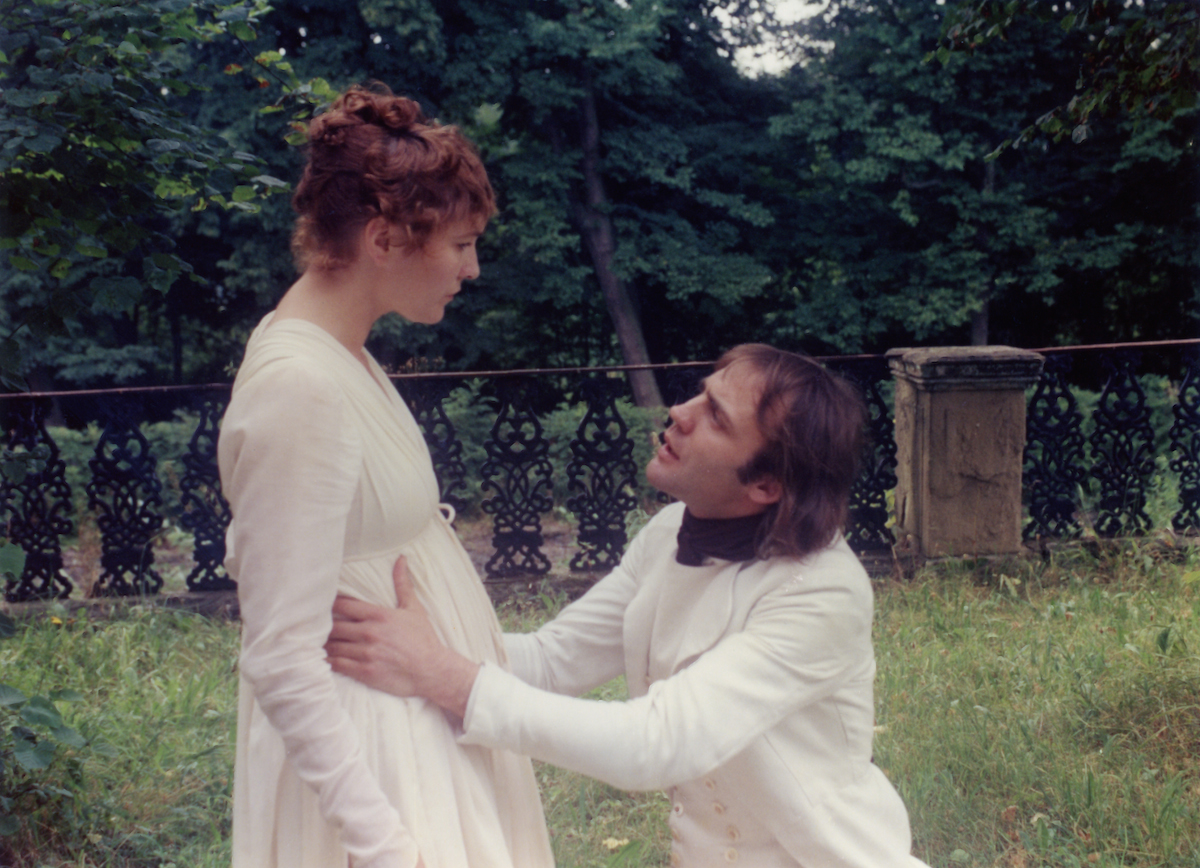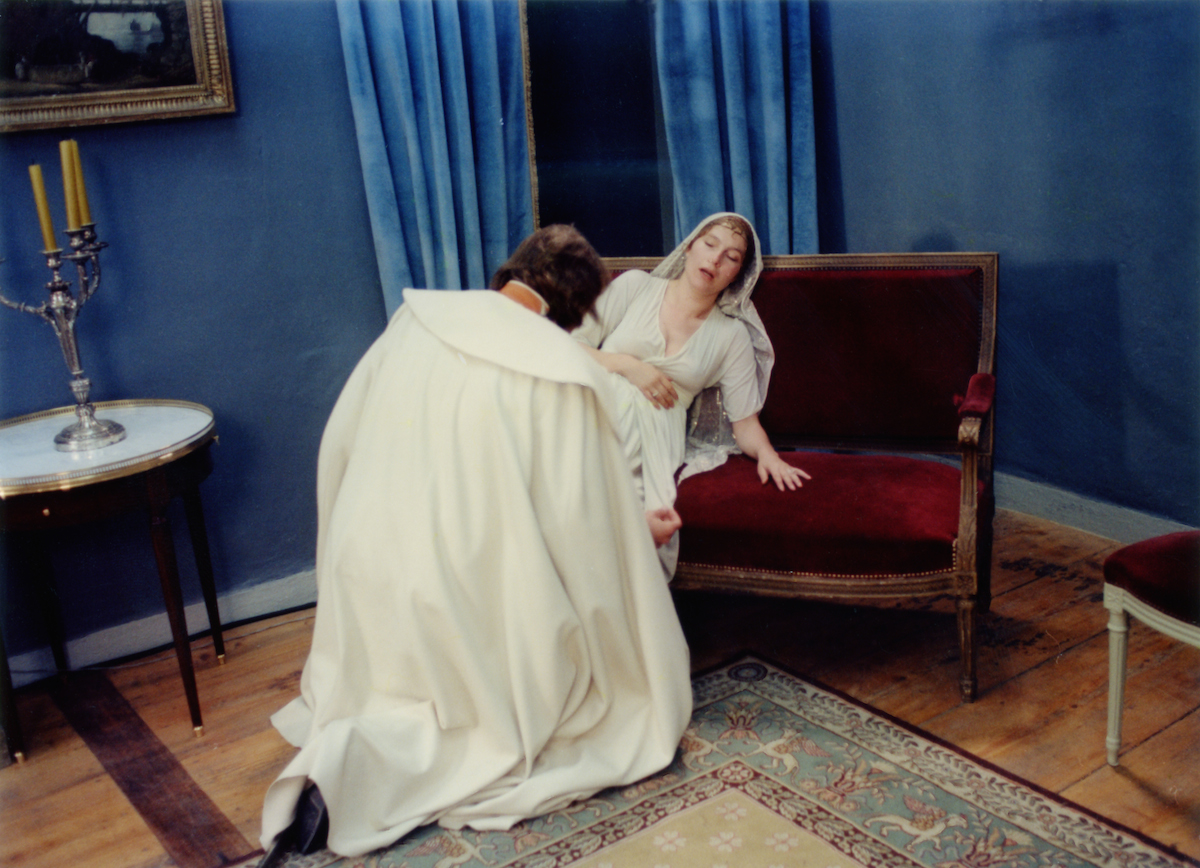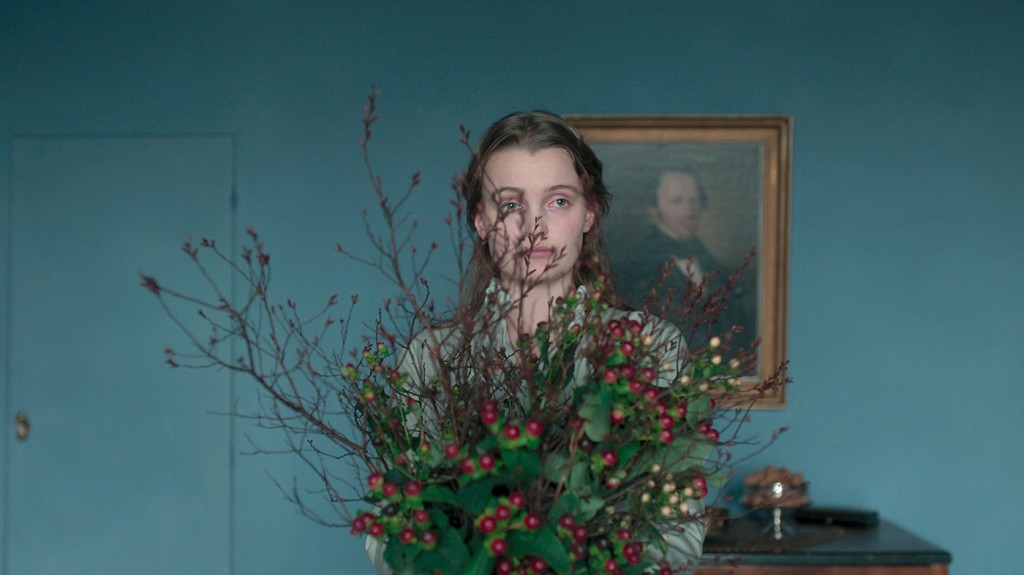
Amour Fou, the fourth and latest film by Austrian auteur Jessica Hausner, which opens at Film Forum in New York March 18 (with a subsequent limited release elsewhere), is a Berlin-set account of the platonic relationship between Heinrich von Kleist, the German dramatist, and Henriette Vogel, the wife of a government official, who together in November 1811 took their own lives in a suicide pact. Kleist was thirty-four, Vogel thirty-one. Retaining what is by now a trademark and playful ambiguity, Hausner plays this curious tale straight, holding its innate tragic qualities at bay in favor of a mystery that, without any easy resolution, must finally become comic. Writing elsewhere on the film, I recently noted that of all its clever subtleties, perhaps the most notable is how it unfolds seemingly from the perspective of its male protagonist, when its deeper complexities actually center around its leading woman.
Such complexities are rooted in the central mystery also previously mentioned: just how does a man of seemingly unremarkable personality persuade a woman of sane mind to commit suicide with him? What exceptional circumstances—historical, social, political, personal—need to coincide in order for this to happen? As played by Christian Friedel, Kleist in Hausner’s film is something of a joke—if an irreconcilably contradictory one. On the one hand he hails from the same aristocratic classes who, in 19th-century Prussia, find themselves dismayed by a number of concomitant tidal waves, as exemplified by an imminent universal tax system, the aftershocks of the French Revolution, the specific emergence of the bourgeoisie and more general advancements in intellectual, philosophical and scientific enquiry.
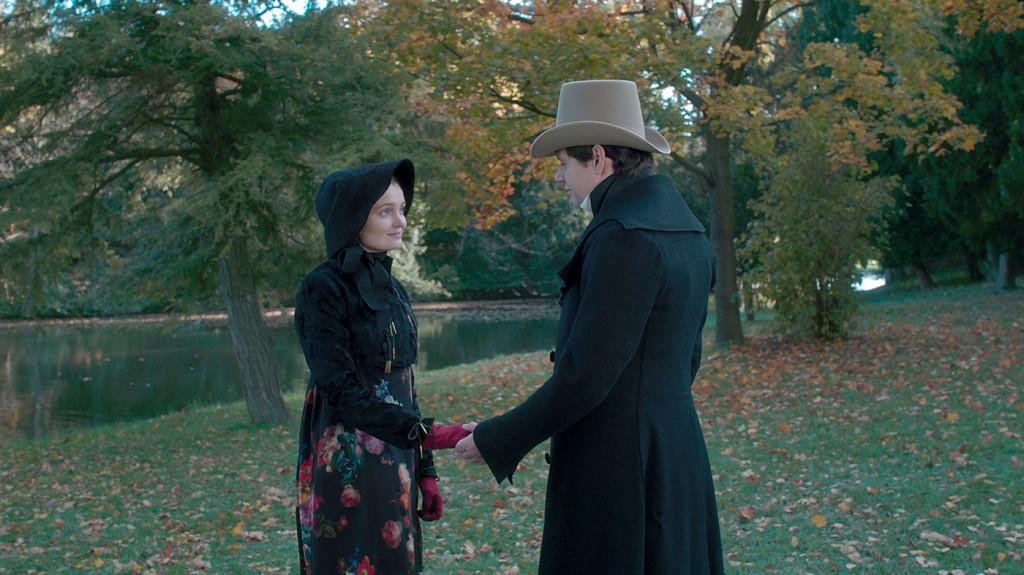
On the other hand, Kleist is clearly at odds with the status quo that is so desperately hanging onto the property laws of yore. His aunt, on whose financial support he depends, complains that the new tax proposals are “utterly inconvenient” for her (“even we have to pay taxes”), and it’s to Hausner’s credit that the writer’s insufferable narcissism is half-accounted for by such scenes. In others, the practicalities of the new economic order are elaborated upon: how did, or indeed does, a nation implement a tax system when the majority of its people (unseen here) are still unregistered with a trade? In addition, we’re told, there are too few officials, the nobility cling to their privileges like a bone and there’s no system by which to measure income and property. It isn’t difficult to find not so much parallels to present-day Europe, here, as the very seeds of the superclass that currently governs it.
The real fools in Amour Fou are those attempting to debunk social change by claiming that the established socioeconomic order is the result of natural laws, is somehow removed and immune from the hazards of an artificial marketplace. The film’s title, now in common parlance in languages other than French, primes this subtext: by the beginning of the 19th Century, the French Revolution was beginning to infiltrate long-standing empires. It’s no coincidence that in their Communist Manifesto, written some thirty-seven years after the film’s events, Marx and Engels were able to observe a specter already haunting Europe. Such reminders, that older elites were fallible before they themselves realized it, are never unwelcome; even the Vogels’ ubiquitous Weimaraner, a mascot for aristocratic Germany if ever there was one, appears to be sadder than everyone else around it. The very air is pregnant with the anticipations of history.
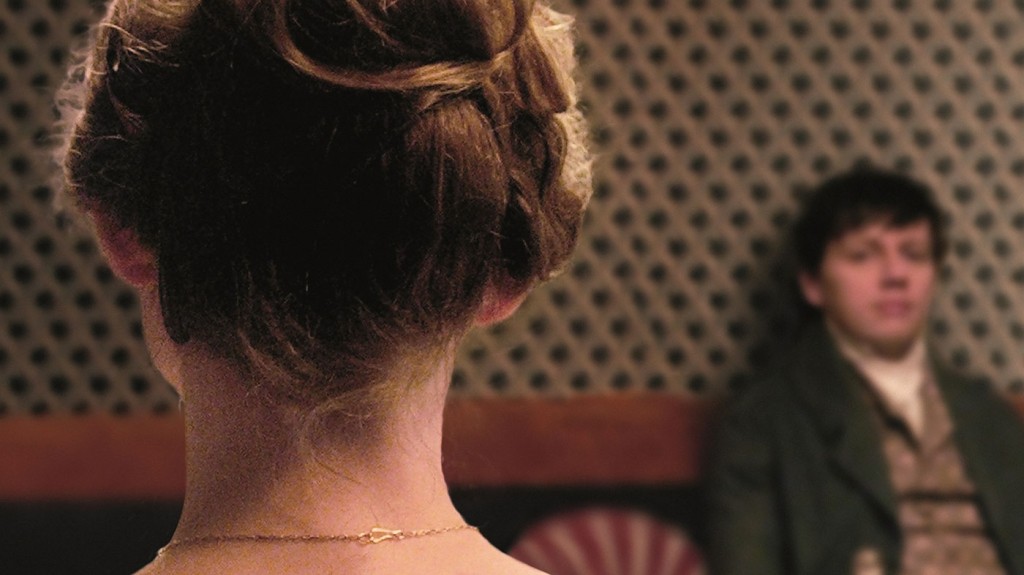
These shifts find their dormant spokesperson in Henriette, who spends much of the film having to listen to others—all men—discuss things deemed beyond her station, including the apparently untreatable abdominal tumor with which she herself has been diagnosed. As the film progresses, though, Henriette grows in confidence, and Schoeink is exemplary in conveying the character’s unacknowledged precocity in early scenes and her moments of doubt regarding Kleist in later ones. Indeed, just as Kleist might be a suitable stand-in for Romanticism—at once dispirited by, responding to and bound up with the limitations of its class—Henriette’s strengths are all the deeper for being so contained, so quiet, so in-the-making. This is precisely why in Hausner’s film the final interpretation of the duo’s shared fate has less to do with mutual consent as it does the selfish and insidious imposition of male-on-female violence.
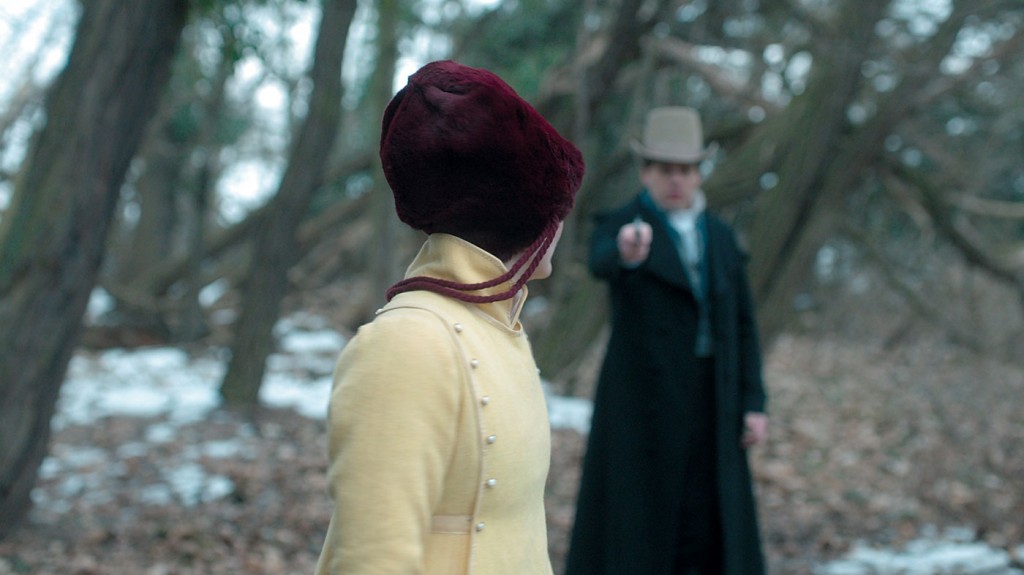
Such thematic threads chime well with Eric Rohmer’s The Marquise of O, which won the Grand Prix award in Cannes upon premiering there in 1976. In addition to it being an adaptation of Kleist’s own novella, first published in 1808 (Hausner’s story begins in 1809), there are startling affinities between the Rohmer film and the Hausner. Like the more recent work, Marquise centers round a female protagonist—Juliette, the virtuous widow of the title (Edith Clever)—who nevertheless spends large portions of the film listening to, admired by, intruded upon, spoken about and castigated by others.
Set in 1799 Italy during Europe’s Second Coalition War against revolutionary France (in which a teenage Kleist had participated as a Prussian officer), its story opens with Russian forces blockading the citadel overseen by the Marquise’s father. About to be raped, she is saved by Count F. (Bruno Ganz), a Russian officer who thereafter maintains an intensely devout love for her, proposing marriage even when the Marquise discovers, much to her family’s horror, that she is pregnant—though she insists that she is innocent, claiming the pregnancy is the result either of a miracle or a rape.
Appearing more like an angel than a gallant knight, Ganz’s Count dons throughout the film a tunic so immaculately white that the righteous grounds with which he insists upon marrying the Marquise turn increasingly suspicious. In fact, Ganz—moping, deadpan, through a succession of comically flat emotional outpours—is not unlike Christian Friedel’s own portrayal of Kleist in Amour Fou. A bit too intense, a bit too forceful for his convictions to be taken seriously, the Count is a figure more of folly than of courage. As Juliette’s mother puts it, “He seems to storm ladies’ hearts as if they were fortresses,” and indeed, the bloated, narcissistic sense with which the Count pursues his fancies is a telling precursor to Friedel’s Kleist. Did the latter, in real life, write the Count in his own image?
Rohmer, who died in 2010 aged eighty-nine, remains one of the few male filmmakers sensitive, radical and frankly competent enough to have given us female characters more daringly and fully fleshed-out than the facile sketches the cinema customarily offers. As Adrian Martin noted recently: “Rohmer’s narrative style, the particular kinds of stories and intrigues he liked to tell seem classical and simple. They are linear—no flashbacks. They have the air of being rather external and objective: no point-of-view shots, no subjective dreams, hallucinations, or fantasies.”
Martin goes on: “But this simplicity is deceptive. Rohmer’s stories are, at every level, full of fundamental mysteries and ambiguities. The lies, delusions and projections of characters proliferate. Key events sometimes occur between scenes, or just off-screen; our only access to them comes through competing accounts, each with their own, partial perspective and wily agenda. The greatest mystery of all is usually the filmmaker’s own viewpoint towards what he is showing, and particularly towards the central character in each film: is Rohmer approving or disapproving, is he being indulgent or ironic?” Such comments seem to apply equally to Hausner—and it’s about time, perhaps, that we began to situate her work in line with the most elusive of the French New Wavers.
Amour Fou harks back to Kleist’s novella and Rohmer’s adaptation but goes further than the limitations of both. For while the earlier works reveal how an ostensibly romantic seduction is underpinned by violence, deceit and the unthinkably coercive pressures of social tradition, each ends with a strongly implied Happy Ever After. In contrast, if Hausner has the decency to portray Kleist as a victim of his epoch, then her Henriette is doubly so, because the same imbalances and contradictions that seem to condition one poor soul’s suicidal tendencies also marginalize an otherwise intelligent woman to the point at which one man’s pathetic whims become a charm.
But such charms wear off: at the crucial moment, an inimitable expression of distrust falls upon Henriette’s face. If in the early 19th century her palpable strengths could find no outlet, the final moments in Amour Fou contain the seeds of a nascent revolution to come. History is hers now.

